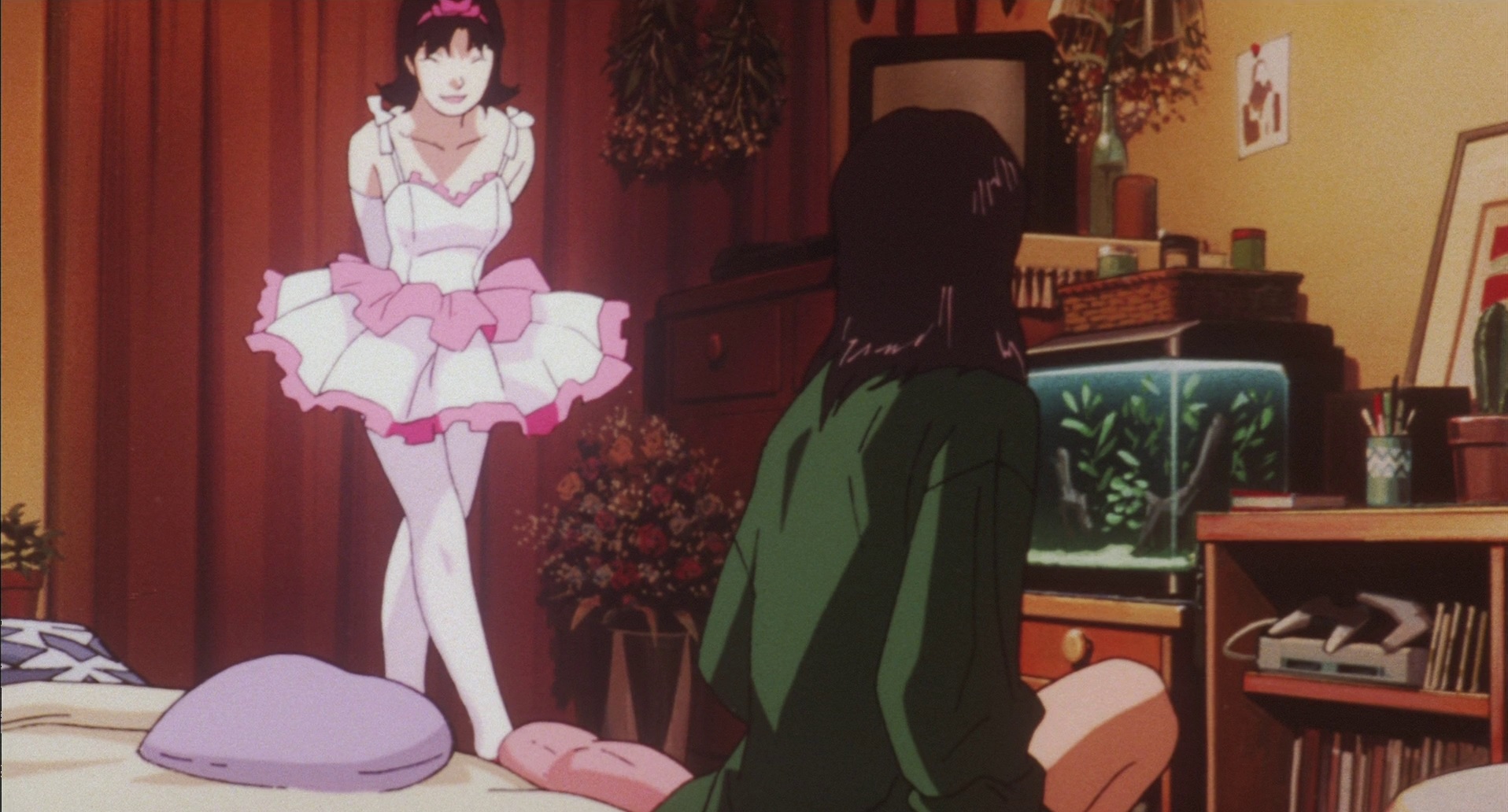“…after going back
and forth between the real world and the virtual world you eventually find your
own identity through your own powers. Nobody can help you do this. You are
ultimately the only person who can truly find a place where you know you belong.”
That’s Satoshi Kon on the anime, his first feature as a
director. It’s essentially a slasher film in which the victim and predator are
split personalities vying for control over the main character, the latter
drifting out to possess other bodies and use them as weapons. What’s real and
what isn’t is kept intentionally vague, but it’s also somewhat beside the
point. What Kon is really interested in is the way we find out who we really
want to be in the maze of media and culture we consume.
The protagonist Mima is a 'pop idol' who wants to become
a serious actress. Her fan base is exclusively comprised of young men who are
attached to her pure, pleasant and infantile persona. Her career is managed by
an agency, mostly men again telling her what to do. But the choice to become an
actress is her own. It is a chance to grow up, but it will also disappoint her
fans, who expect her to play one particular role, rather than many. An irony
the film touches on (but doesn’t explore enough) is that in transitioning from her
image of the virgin, Mima is almost inevitably cast as a whore. It seems there
are only so many roles available, although Kon might be suggesting that more avenues
become open once the teen idol fantasy is abandoned for a more adult (in every sense of the word) persona.
The decision to become an actress leads to a crisis – a part
of Mima’s psyche rebels and seeks revenge for her own disgrace, murdering the
scriptwriter who wrote her into a rape scene and the photographer who persuaded her to pose nude for a magazine shoot. The slasher wants to give the fans what
they want, and crush Mima’s attempts to become her own person. She is a
manifestation of the urge to go back and have your life controlled by other
people.
The film is an efficient thriller, spending some time at the
beginning establishing Mima’s character before gradually pulling apart her
sense of reality. The tension rises as the bodies pile up, and good use is made
of the eeriness of a sugar-sweet sprite being responsible for a variety of brutal
stabbings. It feels like a more linear and focused work that Paprika (the only other Kon anime I’ve
seen). And it’s a more satisfying exploration of the struggle to assert your
identity in a mass media society – which amplifies rather than dissipates the
expectations people have of what your ideal self should be.

No comments:
Post a Comment